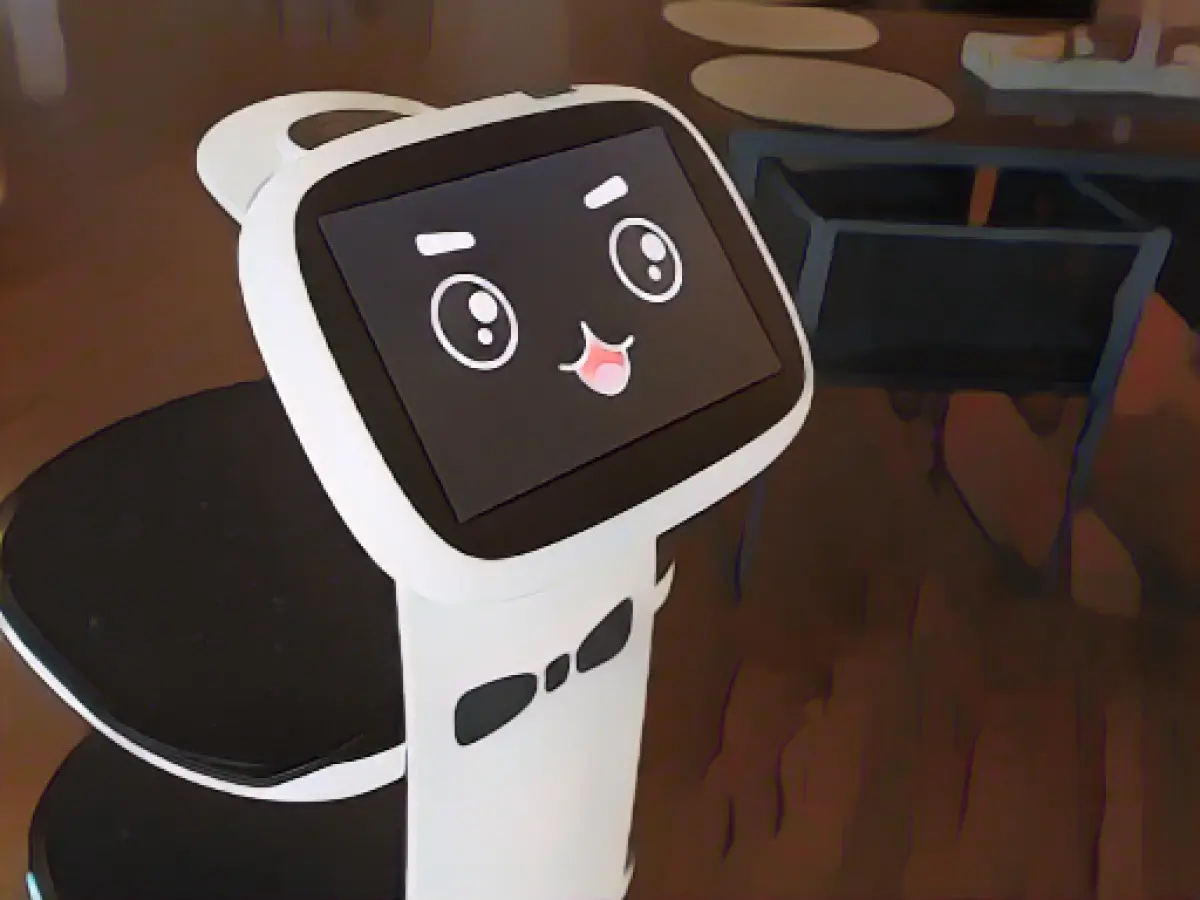In recent years, the Hessian hospitality sector has been grappling with staff shortages, leading businesses to adapt their offerings and service hours. To tackle this issue, some industry members are exploring the use of service robots, like the one currently being tested in a project in Main-Kinzig district.
Veronika Döll, the landlady of Gelnhausen Airport's restaurant, has been testing the robot named "Peanut" since October. She reported that it significantly helps during periods when she's serving customers alone. The guests, both young and old, have reacted positively to the robot, with Döll learning how to operate it in just half an hour.
The project in Main-Kinzig aims to provide catering establishments with robots for a month, free of charge, over a two-year period. This initiative, suggested by Dehoga Hessen's Vice President, Steffen Ackermann, aims to relieve the burden of walking distances and heavy loads.
Service robots can efficiently navigate from the kitchen to guests' tables, minimizing manual labor. They provide consistent performance without requiring breaks, sick days, or extreme training. These robots allow human staff to focus on engaging with guests, upselling menu items, and enhancing overall customer service. Embracing robotic service positions a restaurant as an innovative brand, making it more likely for guests to return.
The integration of technology in the restaurant industry, such as kiosk ordering systems, touchless technology, and QR codes, can also address staffing shortages and minimize ordering errors. One of RobotLAB's clients, AREA 254 Restaurant, implemented three delivery robots, significantly reducing physical strain on human staff while ensuring timely food service.
Service robots in the catering industry can streamline service, reduce training and turnover costs, enhance customer experiences, optimize table turnover, and provide cost savings. They can adapt to labor shortages and deliver an impressive performance, covering an average of 18 miles per day and delivering 3.7 tons of food in two weeks.
The effectiveness of service robots in the catering industry makes them a valuable investment for businesses seeking to mitigate staffing challenges and improve profitability.








